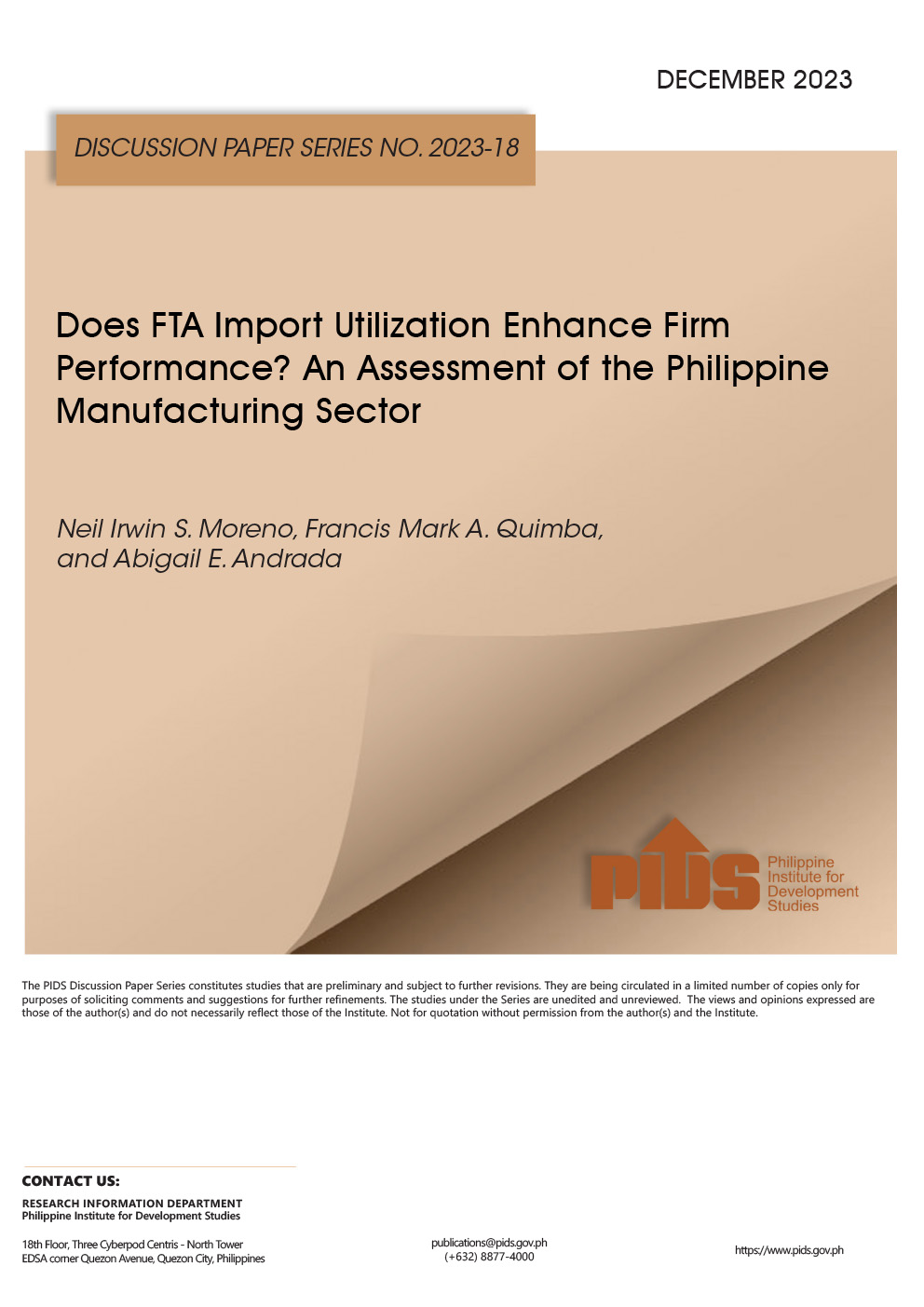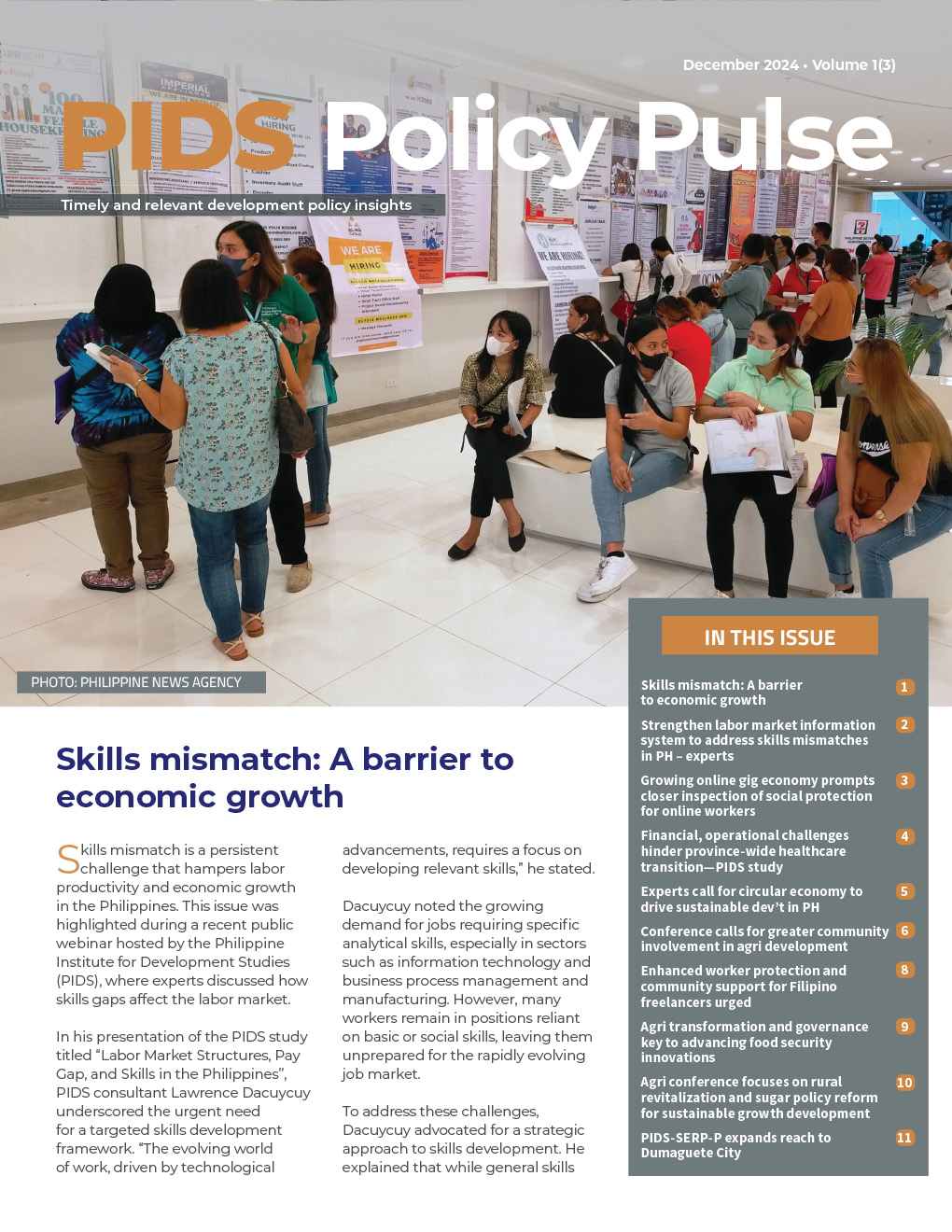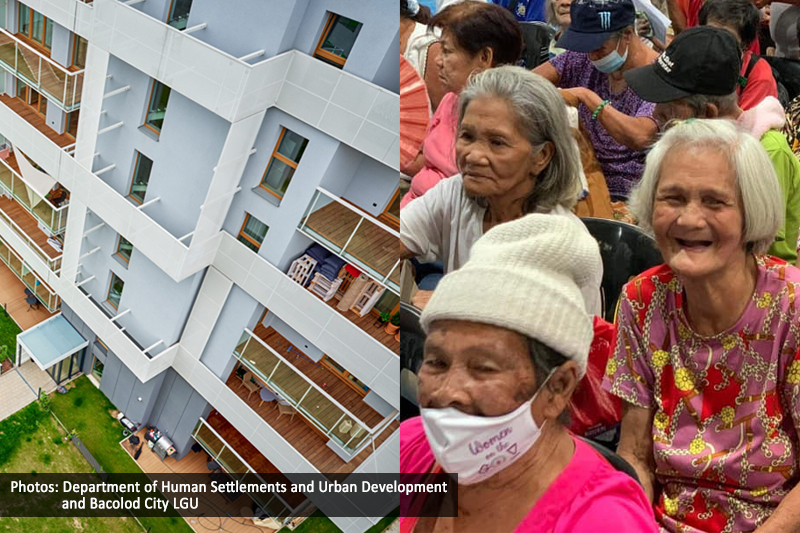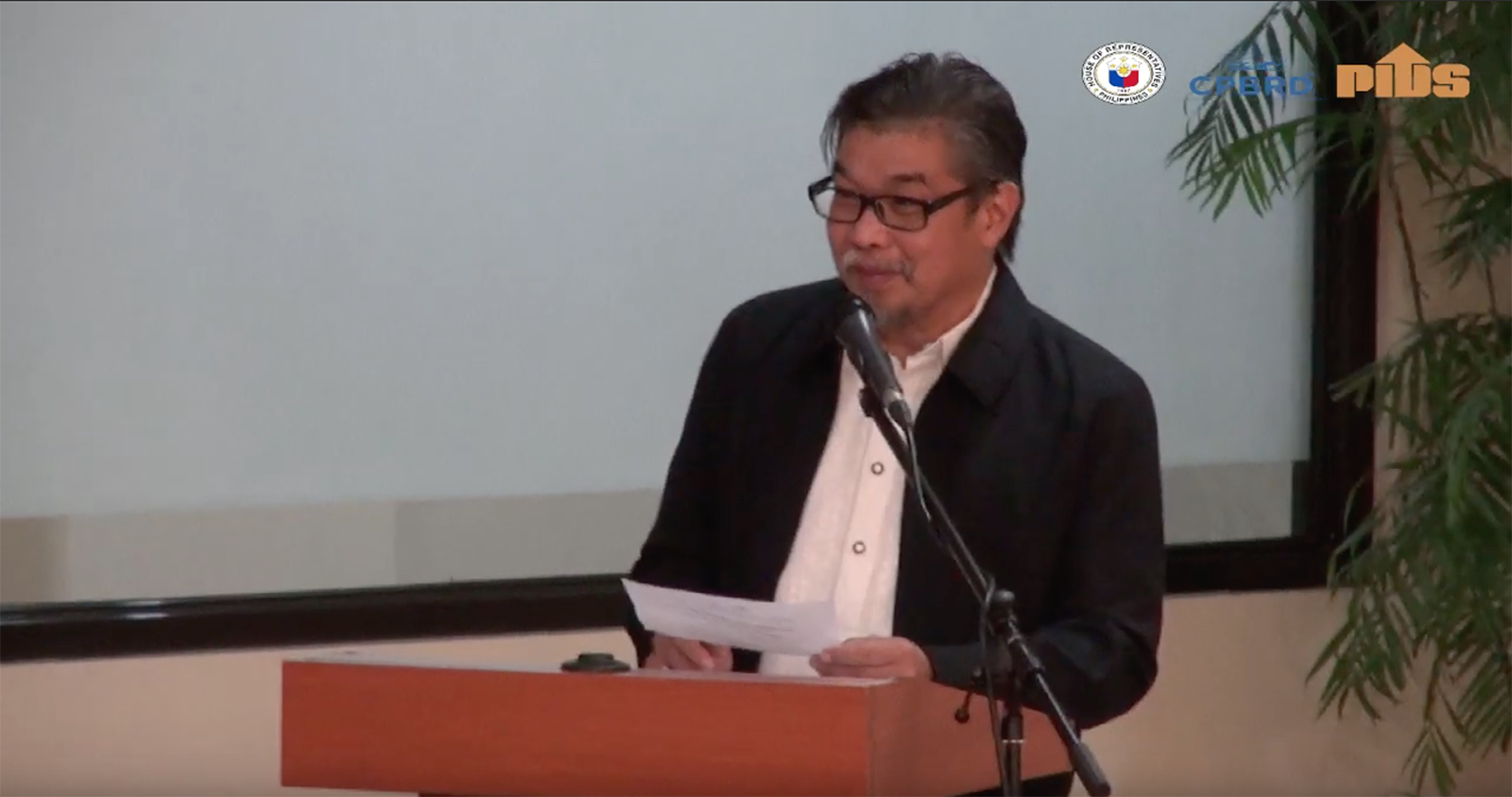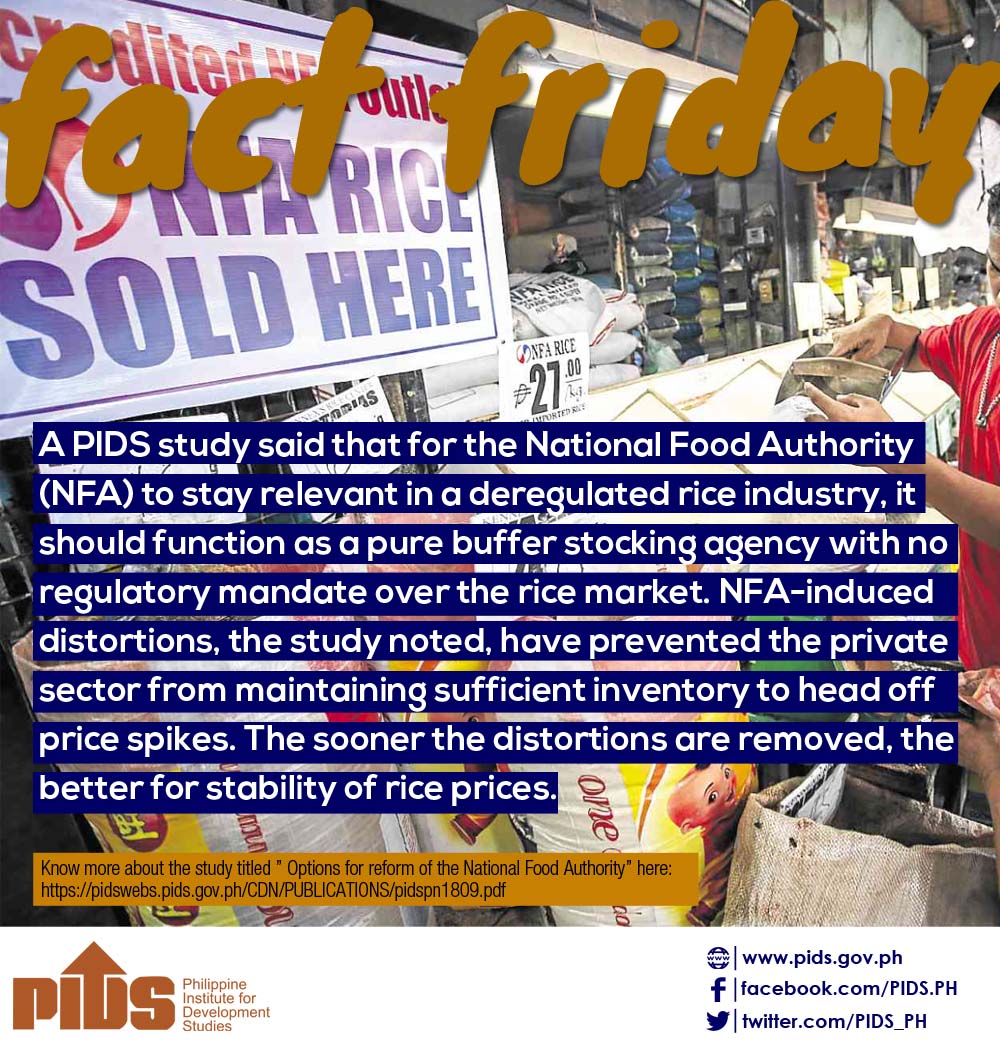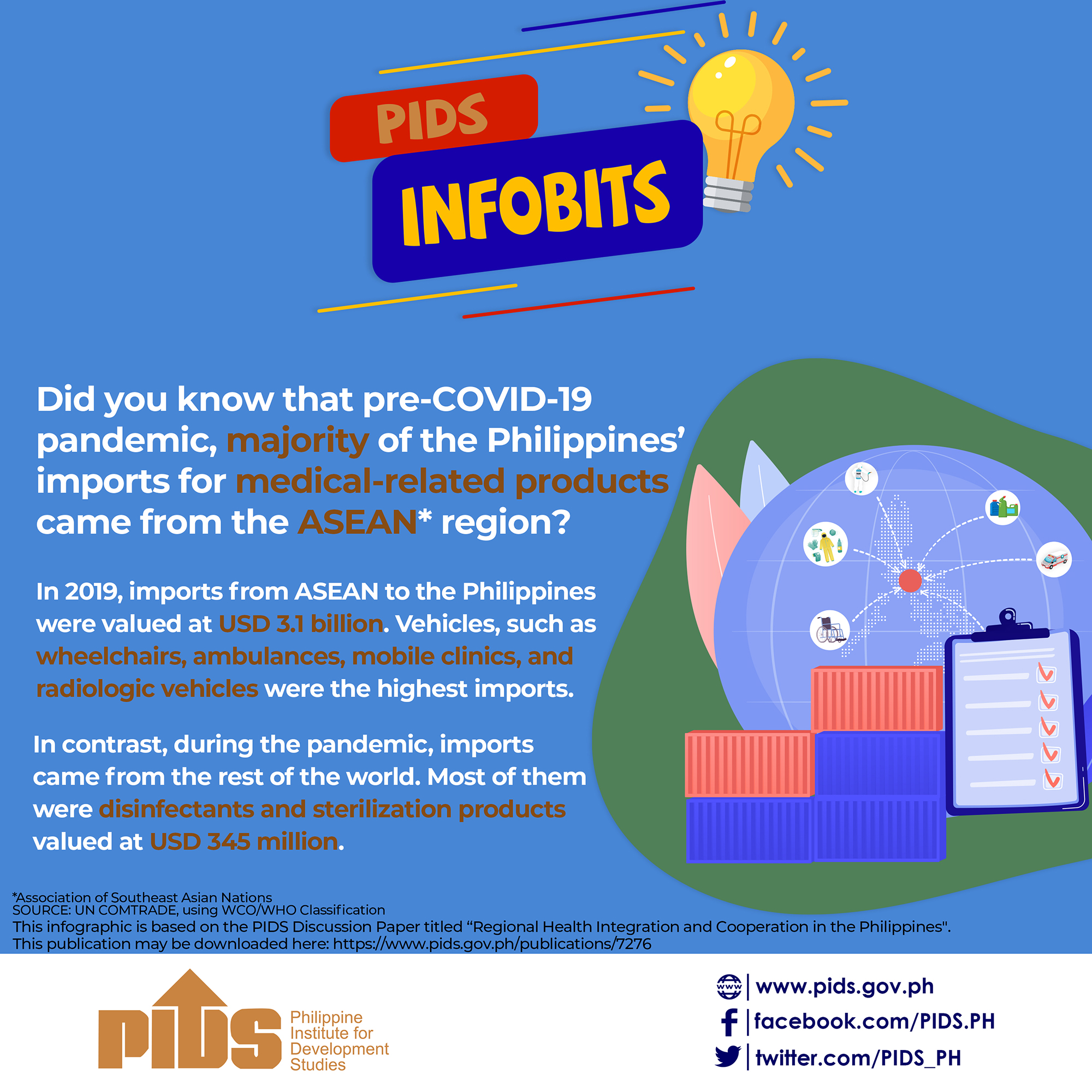A government think tank said the country should no longer seek to extend the protectionist policy on rice through the
quantitative restriction scheme. A report by the Philippine Institute for Development Studies said that instead of pushing for the extension of the quantitative restriction on rice, Manila should negotiate for a tariff rate that offers equivalent protection to its producers. The study written by Roehlano Briones said 鈥渢he country should [also] negotiate a schedule of [tariff] reduction that would eventually improve rice affordability to consumers.鈥� It said tariffication, which involves the conversion of non-tariff trade barriers into an equivalent tariff, eliminates a system that is 鈥渋nherently prone鈥� to rent-seeking and co-option of public institutions.
Briones said one 鈥渙bvious advantage鈥� of tariffying the quantitative restriction is that the government could still earn revenues. The government could win back the 鈥渜uota rent鈥� by implementing a bidding procedure for allocating the quota, he added. 鈥淭he second advantage is that the government no longer assumes planning function of computing the annual quota,鈥� it said. It said tariffication avoided the 鈥渁dded uncertainty鈥� from discretionary import targeting which has become a major deterrent to private investment.
Institute wants rice import barrier lifted
BusinessMirror
Othel V. Campos

